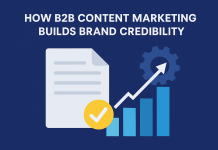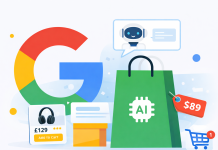Personalized marketing is no longer just a trend; it’s a business imperative in today’s digital-first world. With consumers demanding tailored experiences and interactions, leveraging personalization can significantly boost engagement, drive loyalty, and ultimately improve ROI. This blog delves into the nuances of personalized marketing, its benefits, strategies, tools, and examples to inspire your efforts.
What is Personalized Marketing?
Personalized marketing, also known as one-to-one marketing, is a strategy where brands tailor their messaging, offers, and experiences to individual customers based on data insights. By understanding consumer preferences, behaviors, and demographics, businesses can deliver content that feels relevant and impactful, improving the overall customer experience.
Why Personalized Marketing Matters
1# Enhanced Customer Experience
Customers want to feel valued. Personalization helps brands speak directly to their needs and preferences, creating a memorable experience that stands out in a crowded marketplace.
2# Increased Conversion Rates
Tailored offers resonate more with consumers. For example, an email campaign with personalized product recommendations is more likely to convert than a generic blast.
3# Better Customer Retention
By building meaningful connections through personalized touchpoints, brands can foster loyalty and reduce churn.
4# Competitive Advantage
In a saturated market, personalization can be a key differentiator that sets your brand apart from competitors.
Strategies for Effective Personalized Marketing
1# Segment Your Audience
Break your audience into distinct segments based on factors like age, location, purchase history, or online behavior. This segmentation allows you to craft targeted campaigns.
2# Leverage Data and Analytics
Data is the foundation of personalized marketing. Use tools like Google Analytics, CRM platforms, and social media insights to gather information about your audience.
3# Implement Behavioral Targeting
Analyze user actions, such as browsing habits or abandoned carts, to send timely and relevant messages that guide them down the funnel.
4# Use Dynamic Content
Incorporate dynamic content in your email campaigns, website, and ads. For example, display products a user recently viewed on your website.
5# Integrate Omnichannel Strategies
Consistency is key. Deliver personalized experiences across all channels, from email to social media, ensuring a seamless journey.
6# Invest in AI and Machine Learning
AI-powered tools can predict customer preferences, automate personalization at scale, and even recommend products or services.
Examples of Successful Personalized Marketing Campaigns
1# Amazon’s Product Recommendations
Amazon uses advanced algorithms to suggest products based on users’ browsing and purchase history, driving significant upsells and cross-sells.
2# Spotify’s Discover Weekly
Spotify’s algorithm curates a playlist every week tailored to each user’s listening habits, fostering engagement and loyalty.
3# Netflix’s Content Recommendations
Netflix personalizes content suggestions based on viewing history, ensuring users always find something they love.
Challenges of Personalized Marketing
While personalized marketing offers many benefits, it’s not without challenges:
- Data Privacy Concerns: Consumers are increasingly aware of their data and may be reluctant to share it. Brands must prioritize transparency and compliance with regulations like GDPR and CCPA.
- Data Silos: Fragmented data can make it challenging to build a comprehensive view of the customer.
- Over Personalization: Too much personalization can feel intrusive or creepy, potentially alienating customers.
Top Tools for Personalized Marketing
1# HubSpot: A comprehensive platform for managing personalized email campaigns and customer journeys.
2# Salesforce Marketing Cloud: Advanced CRM software that helps businesses create tailored campaigns.
3# Optimizely: A tool for personalizing website experiences using A/B testing and customer insights.
4# Segment: A customer data platform that unifies data for better personalization.
Tips to Get Started with Personalized Marketing
1# Start Small: Begin with simple personalization techniques like using the recipient’s name in emails or segmenting your audience.
2# Monitor Performance: Use analytics to track the success of your campaigns and adjust your strategy as needed.
3# Be Transparent: Clearly communicate how you use customer data and ensure compliance with data privacy laws.
4# Iterate and Improve: Personalization is an ongoing process. Continuously refine your strategies to stay relevant.
Conclusion
Personalized marketing is a powerful strategy that allows businesses to connect with their customers on a deeper level. By leveraging data, implementing smart tools, and maintaining a customer-centric approach, brands can create meaningful interactions that drive loyalty and revenue.












